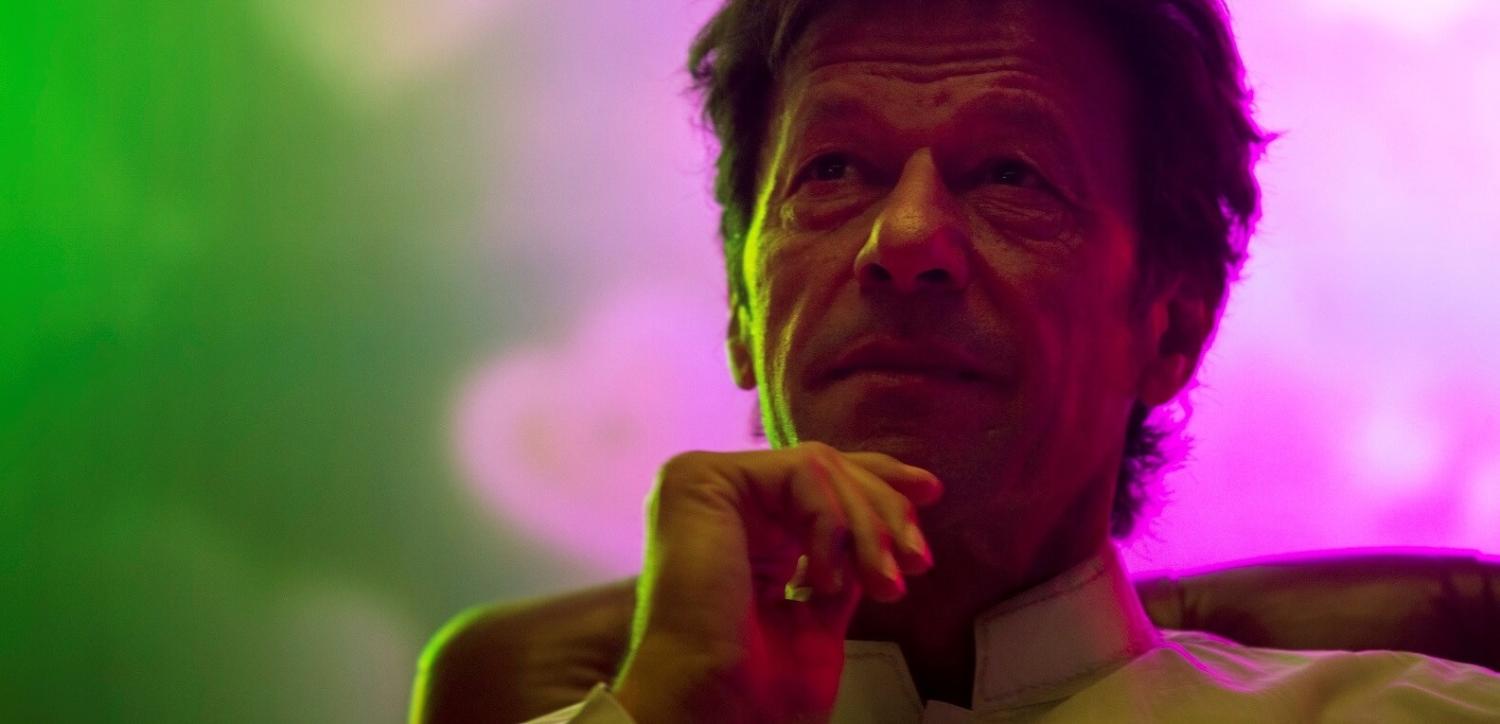With Imran Khan poised to form a government in Pakistan, the policy his Pakistan Tehreek-e-Insaf (PTI) party will adopt towards China, especially the US$62 billion China–Pakistan Economic Corridor (CPEC), is a focus of intense discussion.
China’s interests have special resonance following setbacks to its investment in Sri Lanka and Malaysia, where new governments publicly demanded revision of some projects signed by their predecessors. Although China managed the situation, the resulting controversy dented its image internationally. The CPEC also generates scepticism in some quarters, and China’s stakes in Pakistan are higher than those in Sri Lanka and Malaysia.
Pakistan Tehreek-e-Insaf has a different vision and governance style and would like to advance the China–Pakistan Economic Corridor according to its priorities, which means changes can be expected.
For a long time, many in China had a muddied image of Imran Khan. From opposition, Khan’s protests against election riggings in 2014 led to the postponement of Chinese President Xi Jinping’s first visit to Pakistan (the trip finally took place in April 2015).
PTI had also expressed reservations over the CPEC route, raised concerns about its transparency, and accused the federal government for the misuse of funds. Although Khan’s politics targeted the ruling Pakistan Muslim League-N (PMLN), and on occasion he sought to clarify that he was not against CPEC, his rivals interpreted his policies as opposed to Chinese projects – an impression that many circles in China accepted.
This, coupled with China’s relatively fewer contacts with Khan, as compared to those with other mainstream political parties, added to China’s unease. Aside from his 2011 visit to China, no significant interaction between the two sides existed. Neither Khan, who was engrossed in domestic politics, nor Beijing, which was comfortable with the ruling elite pushing the project forward, made efforts to remove misperceptions. Beijing, like many other capitals, probably did not expect Khan to win the election.
Against this background, Khan’s first post-election speech on 26 July should have surprised Beijing. He started his foreign policy by further consolidating ties with China, expressing the resolve to take advantage of CPEC to draw investment and learn from Chinese experience against corruption and poverty.
Beijing responded quickly. The foreign ministry spokesperson appreciated his remarks and expressed a desire to work with the new government. This was followed by a series of messages and articles in Chinese and Pakistani newspapers. The Chinese ambassador was only the second after Saudi Arabia to meet Khan at his residence. Amid this, China released $2 billion loans to Pakistan under a deal negotiated by the previous government.
These measures dispelled concerns about immediate uncertainty in the relationship. However, it is logical to expect some revision and readjustment in CPEC-related projects under the government. PTI has a different vision and governance style and would like to advance the project according to its priorities, which means changes can be expected.
Khan’s likely Finance Minister, Asad Umar, wants to bring the CPEC to parliament. This will reveal details of the project for the first time, especially the terms and conditions of Chinese loans.
PTI might revise the nature of projects to put more focus on developing local human resources and hydropower projects rather than mega projects of infrastructure and coal-powered projects for electricity generation. Thus, the Organ Line, Quaid-e-Azam Solar Power Park, and, according to one analyst, the $8 billion north–south railway project linking Karachi with Lahore might come under tight scrutiny. The PTI government might also reallocate resources to address grievances about smaller provinces.
In line with its manifesto emphasising merit and transparency, the PTI will most likely introduce open biddings rather than leverage Chinese companies, and in so doing take into regard the interests of local industries. If Asad’s tweet that the real success of CPEC would be using it to allow Pakistani products to reach international markets, rather than merely providing a transit to Chinese goods, is any guide, Khan’s party might also prove a hard (re)negotiator.
CPEC will be a real success if pakistani products are exported using the CPEC infrastructure not just a transit route for chinese products
— Asad Umar (@Asad_Umar) August 31, 2016
In the broad sweep of the Sino–Pakistan relationship, these changes are minor in nature and, most importantly, in the long-term interests of the two sides. The review will help bring transparency and enhance the overall credibility of CPEC. This will draw more interest and investment from both domestic and international quarters.
Had the previous government done this, it could have prevented unnecessary scepticism. The China–Pakistan relationship is based on the permanent factor of geography, shared visions on regional issues, and decades of trust. The fact that changes of government in Pakistan in the past did not affect this relationship will remain valid. Whether Imran Khan maintains the tradition and chooses China as his first foreign visit will be clear in coming weeks; however, this alone will not be a reflection of his foreign policy priorities.

